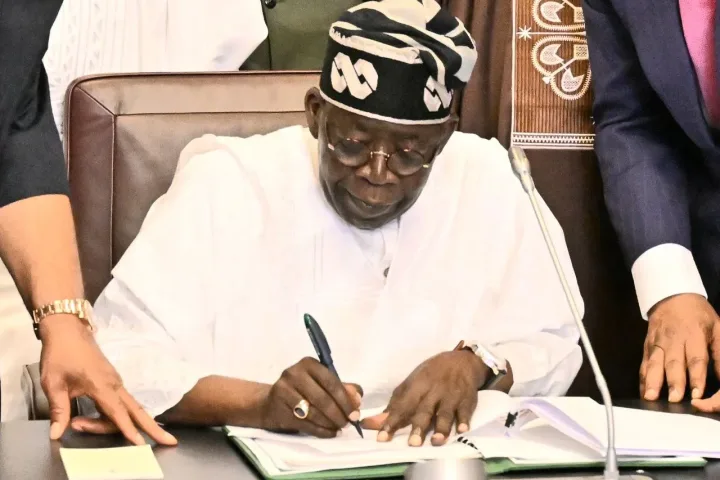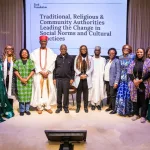Dr Chichi Aniagolu is the Regional Director of Ford Foundation West Africa. Her organization has been on a mission to ignite local philanthropists, urging them to fill emerging gaps and play a vital role in fostering lasting, sustainable change in the economy and businesses. Featuring in a one-on-one session during the Wednesday evening news bulletin on Arise TV, the very articulate amazon had the following to say about “Sustainable Philanthropy in Nigeria”:
Join our WhatsApp Channel
Nigerians are givers. Everyone can name at least one person they have or are supporting financially; so, when you talk of local philanthropy what exactly do you mean? Are we not giving enough?
We recognize that the economy isn’t doing very well and that the government and the private sector have always been the ones called upon to improve the economy. But the reality is that without an active civil society and without local philanthropists taking the risks that the government and the private sector aren’t willing to take, the development we want to see may not be feasible for a very long time. I can give you an example: we are a giving people… because we don’t have a social security programme in this country, many people have to support the less privileged in their families but the reality is that while that type of giving is extremely important; it is not sustainable. It is also not what will make the type of difference that we want to see. So, what we are advocating at the Ford Foundation is that people who give at the grassroots level should be thinking about it in a sustainable manner. Imagine that you live in the diaspora and you send money home but the village your parents live in has no healthcare system; your relatives are going to schools that are completely dilapidated. To what extent will what you send to them make a difference? If your parents fall ill, they won’t be able to survive it because there is no way they will be able to get the kind of treatment they need in that local village they live in. This is why people have to think about how to support local communities to be able to provide the services that are necessary for the existence of people. We also know that local businesses are also struggling with government policies and a lot of those businesses don’t understand the policies because government doesn’t always consult them. But if you look at many of the policies that have been developed in the social sector; if you look at HIV, education, agriculture, water and sanitation, etc, many of them were done with the support of civil societies and with funding from development partners. We are saying that businesses can also benefit from this; if they support local NGOs, and civil society organizations that are very good and working with government to develop policies, they will be in the position to develop the kind of policies they would like to see with the government. It will no longer be a situation where they are constantly reactionary, they will become proactive by supporting civil society, they will work with government to develop the type of policies that they need such as addressing multiple taxation and other challenges that the private sector faces. They won’t be able to do it by themselves because they don’t have the capacity to develop these kinds of policies with the government. The government itself needs help to be able to develop these policies. This is where working with civil society organizations comes in. This is what international development partners have done for decades; working with civil society organizations to help improve the social sector in Nigeria. I think local businesses and local philanthropists can do the same by supporting local CSOs to improve the business environment.
READ ALSO: Ford Foundation Calls For Sustainable Philanthropy In West Africa
What’s responsible for the growth of philanthropy in developed countries and how can Nigeria learn from this?
The thing is that government alone cannot bring about the development we want to see. In England, the philanthropy sector brings in 11 billion pounds every year and the UK is a developed country. The reality is that there are many innovations that neither the government nor the private sector can do; there are innovations that are expensive and risky that the private sector will not be able to fund and that the government is not interested in. Most times we talk about agriculture having huge potential but have we ever wondered why it never takes off? We have over 200 million people who need food, isn’t that a viable place for people to come in and invest in agriculture? The reason it doesn’t happen is because agriculture is extremely under-developed and the private sector is not going to take the risks that are required to be able to develop the sector. We do a lot of peasant farming in Nigeria. If someone wants to come and set up a cassava-processing plant in Nigeria, they are going to have to aggregate the peasant farmers and set up a whole aggregation system. This might take a year or two and it’s before you can even process any cassava. Will a private sector person be able to do this? What is required is for civil societies to be able to do this aggregation. There are a lot of NGOs that work in the agriculture sector who are building the capacity of farmers. They are the ones who can get the industry to the level where the private sector can become interested in it. This is not yet happening which is why we need to learn from other climes. Many of them both the government and the private sector invested through philanthropy to be able to build these sectors that require interventions before they became attractive. This is why people do it. In developed countries, there are many areas that require research and interventions that are not profitable. The philanthropy sector is filling these gaps over there.
Are there roles that the federal government needs to play to enhance local philanthropy?
Indeed, in many countries, people don’t just give because they are good people. They do so because there are incentives for giving. There are tax breaks for giving. The conservative government in England has a White Paper for giving. So, there is actually a whole policy around giving. The government needs to understand that it cannot do this by itself. It needs to be able to provide incentives for giving so that individuals and companies can give. No matter how much you give in Nigeria, it doesn’t come out of your tax; there is nothing you get from giving yet there are many people who are supporting family members. Giving needs to be incentivised for small companies and other people who want to give. More importantly, just as the government has recognised that it is not good at doing business, it must recognize that it is not good at providing social services either. It needs to be looking at a government-civil society-private sector partnership; not just a private sector-government partnership. Civil society groups are needed in that mix because many of the services government provides are failing because the government is not good at it. In the United States, there are many services that the government offers but they are being run by local civil society organizations or charities as they call them there. Government should hand hospitals, education and other social sectors to civil society organizations that have been able to administer them effectively for so many years in this country. This will make a dramatic difference in the way those services are provided.


















Follow Us